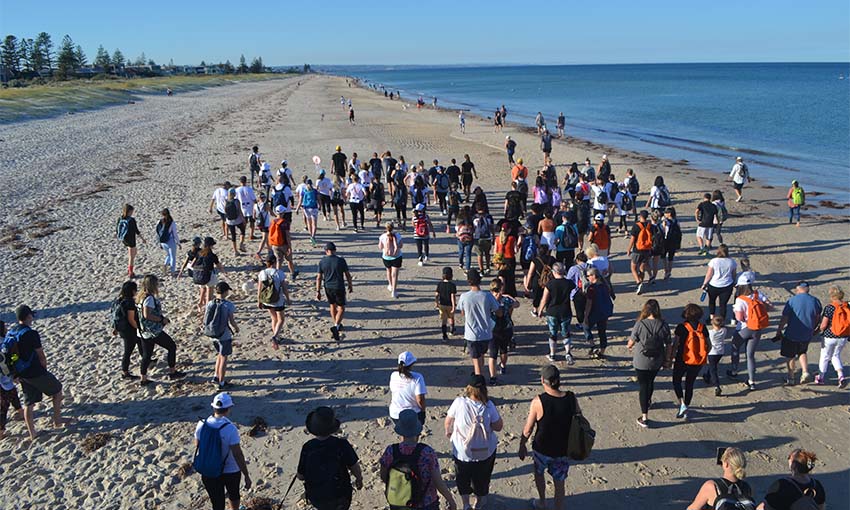A high rate of intimate partner violence and financial coercion is Australia’s dirty secret. Credit Union SA’s CEO talks about the Zahra Foundation and Credit Union’s own initiatives for women fleeing abusive relationships.
Escaping abusive relationships through financial empowerment
Intimate partner violence has risen during the COVID-19 pandemic.
An Australian Institute of Criminology study found that, during the first 12 months of the pandemic, one in 10 women experienced physical violence, one in 12 experienced sexual violence and one in three experienced emotionally abusive, harassing and controlling behaviours.
More than 40 per cent of these women also self-reported that the violence or behaviours increased in frequency or severity during the pandemic.
The Zahra Foundation provides financial counselling, programs and referrals to other services to help women and non-binary people experiencing intimate partner violence become financially independent and avoid a return to the relationship.
Credit Union SA CEO Todd Roberts says the company’s sponsorship of the foundation strongly links to its purpose as an organisation.
“To help South Australians thrive – it’s the reason we do what we do and why we exist,” Todd says.
“Supporting the Zahra Foundation in their mission to help women and non-binary people towards recovery and financial independence is truly a privilege and something we are incredibly proud of.
“We have been sponsoring the Zahra Foundation for five years now. In that time, we’ve been a major partner of their annual Women on the Run fundraising event, provided merchandise and donated funds to their recovery programs.”
The recovery programs include the nine-week Pathways to Empowerment. Zahra Foundation General Manager Kelly-Ann Tansley says restoring a sense of self and goal setting for a new future are key to recovery.
“There’s a misconception in society that a woman or non-binary people are safe once they leave an abusive relationship,” Kelly-Ann says.
“We know that the pathway to recovery is a long journey, holistic support is needed, in terms of financial counselling, reviewing budgets and debts and opportunities to reconnect socially as often women have been isolated.
“There are long-lasting health impacts from either physical assaults or emotional and psychological impacts particularly in situations when a woman’s been controlled or coerced, throughout the relationship, there’s a loss of self-identity.”
The Pathways to Empowerment programs have been operating for more than five years. They run during school terms at locations in Adelaide, North Adelaide and south of the city. Each one is led by two trained specialist domestic abuse recovery facilitators, who provide support and guidance for women to find their voice and be empowered.
The participants are often referred to the Zahra Foundation by domestic violence support services and SA Police, while other women learn about the program and self-refer.
Some women who have used the service have unknowingly had their identity used by abusive partners on loan documents, been coerced into signing financial contracts or simply had limited or no say in the allocation of household income.
Consequently, the foundation’s financial counsellors also advocate on behalf of women dealing with banks, telcos, utilities, credit card companies and government departments.
Kelly-Ann says awareness of financial abuse is growing.
“A lot of financial institutions and government organisations are starting to get really good at understanding what financial abuse looks like and what coercive control is,” Kelly-Ann says.
“This is important because with coercive control, often there isn’t any physical forms of violence. But there’s controlling of a woman, through many means. Financial abuse is often an indicator of other forms of harm or violence within the relationship.”
Credit Union SA worked with Zahra Foundation last year to develop their domestic and family violence policy. CEO Todd Roberts says this has led to a number of other initiatives.
“We are continuously improving our processes and education to ensure we can identify and respond to signs of vulnerability. This includes regular frontline staff training, considerations when designing new products and services, and constant monitoring of accounts and transactions,” Todd says.
“It’s all about making sure we can provide immediate support to victims by protecting their accounts and helping them going forward.
“We are also working with the Zahra Foundation on a new initiative that will enable women and non-binary people who are in domestic and family violence situations to have a secret savings account, potentially giving them a greater chance to flee.”
For more information on Women on the Run click here.




